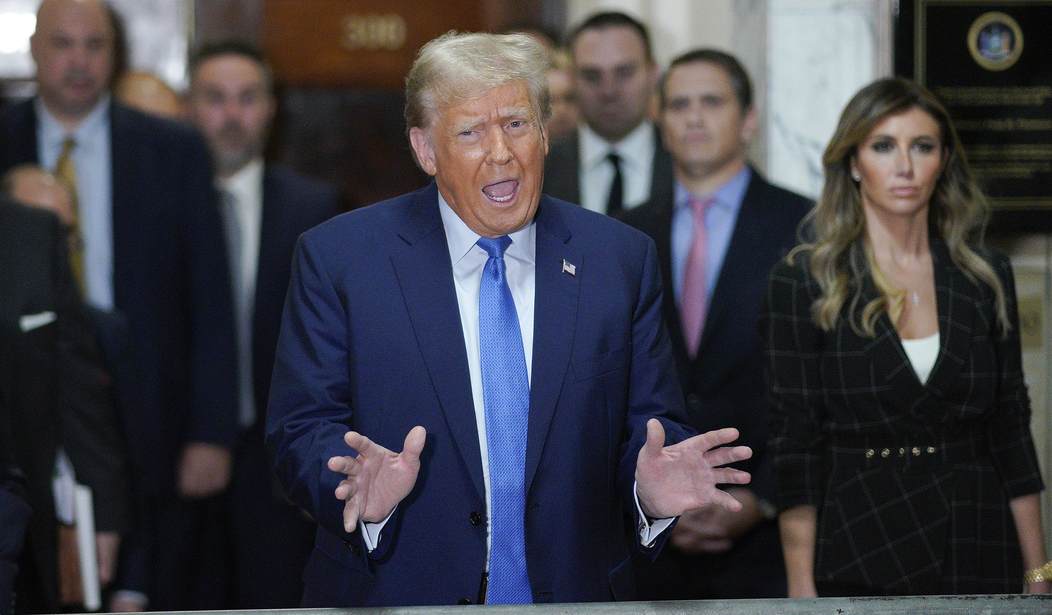WaPo Slams 'Unconscionable' Trump Trial Delays, Claims They Put Election in 'Jeopardy'
The Washington Post is getting very nervous about the timeline regarding Donald Trump's criminal trials.
In a column published on Friday, the newspaper's associate editor Ruth Marcus argues that recent delays to Trump's criminal trial are "unconscionable" because they "play right into Trump's hands."
Marcus explains:
Without strict court supervision and swift action to prevent Trump from running out the clock, his trial could easily collide with the party conventions and the height of the general election campaign. It is not at all far-fetched to imagine it being postponed until after the November election — Trump’s ultimate goal, so he can win, take office and then order the case dropped.
Failing to try Trump before the election would be a terrible disservice to voters. They are entitled to know before casting their ballots whether they are choosing a felon, especially one guilty of election interference. Polling suggests that a Trump conviction would matter even to many Republican voters.
Her comments come after Trump's March trial date was removed from the case docket as a result of delays caused by the appeals process. D.C. District Court Judge Tanya Chutkan has yet to set a fresh trial date.
Marcus, meanwhile, has called on the courts to set an "expedited schedule" that will prevent Trump from getting to the November election without facing trial"
What can be done? The appeals court, delayed decision notwithstanding, has demonstrated its awareness of the need for quick action; it set an expedited schedule for briefing and oral argument. When the panel finally rules, it must take care to set limits that prevent Trump from exploiting the usual deadlines for filing appeals. As a useful analysis from Protect Democracy in Just Security demonstrates, Trump would ordinarily have 30 days to ask for review by the full appeals court, and 90 days after that to go to the high court.
But both the appeals court and the Supreme Court have mechanisms to frustrate this kind of gamesmanship. They can set tighter deadlines and allow pretrial preparation to go forward while they weigh any appeal. Justice has been delayed enough already.
Such forceful rhetoric serves as merely another reminder of how concerned The Washington Post and the rest of the liberal media are about a Trump victory in November, with respected pollsters indicating there is a high possibility the former president could make an unprecedented return to the White House.
The Post is understandably licking its wounds after a devastating few months for the newspaper in which hundreds of staff have been laid off. This is mainly a result of circulation and losing around half of its online viewership, although ironically some analyses have also blamed it on Trump no longer being president.
Last year, the company reported an annual loss of $100 million. Meanwhile, the paper's billionaire owner Jeff Bezos is refusing to back the operation unless it can sustain itself financially.
Over the past year, there have been rumors that Bezos is looking to cut his losses and sell up. Yet one might be forgiven for asking, who would want to buy such a company?





Post a Comment